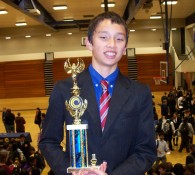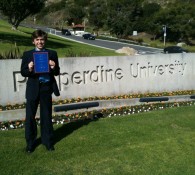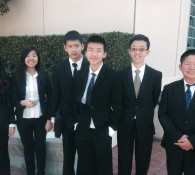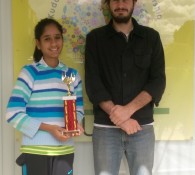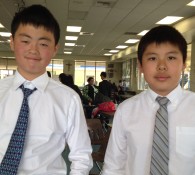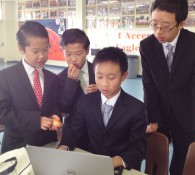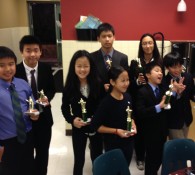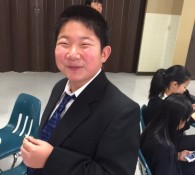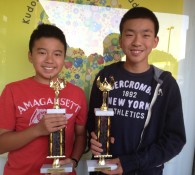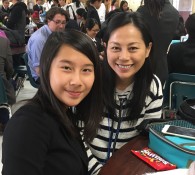Full Course Intros
here
adidas yeezy boost 750
cheap jordan
72-10 11s
Survey Classes:
Overview
The survey classes provide an introduction to the many different events that make up competition speech and debate. Upon completion of both levels of survey class, a student will have covered some 20 different events, and will be well on his or her way towards competitive success. In the survey framework, each event receives between 2 and 4 weeks of instructional time. The exact development of the coursework depends upon the event. In writing events, for example, the event is introduced, along with the organizational structure required for the particular event, and then students spend in-class time writing with instructor supervision and feedback. In no-prep events, the introduction may be followed by demonstrations and then proceed directly to a practice round. Regardless, each event culminates in an in-class competition that determines an event winner. The in-class tournament is modeled after actual speech tournament competition, breaking the students into groups, and then ranking the individual performances within the group. Debate events are also modeled after tournament competition, in which debaters compete directly against other teams. This aspect of the class not only provides competitive motivation, but allows all students to objectively evaluate their own performance against those of their peers. Also, this component means that each student has an opportunity to judge at least one round per event, and to provide useful feedback to classmates.
Elementary Survey Level One
The first level of elementary survey introduces students to ten different events, modified for students in grades 3-5. The speech curriculum includes interpretation, impromptu, and writing events. Debate training includes impromptu debate, congressional debate, and a simplified introduction to public forum debate. Additionally, all students enrolled in this course will participate in an elementary tournament, at which they will compete against students from other schools in one of five events. This is the ideal first step in your child’s Kudos experience. Here, students learn the fundamentals in a rigorous, but fun and nurturing, environment. They participate in in-class and inter-school competitions, and develop the critical speaking and thinking skills that will serve them so well in competitive debate and beyond.
Elementary Survey Level Two
Students who complete the first level of elementary survey class have an opportunity to enter into our advanced level two class. As with each of our survey classes, Elementary Survey Two introduces students to a variety of events. 6 new speech events, not covered in the level one class, are taught in this course. In addition, congressional debate and public forum debate are revisited in more advanced forms, and impromptu debate now includes value based topics, introducing students to the philosophical underpinnings of Lincoln Douglas debate. As in the first class, elementary level two spends several weeks on tournament prep, culminating an inter-school elementary tournament, in which students participate in 1 of 5 possible events. Students who complete both elementary survey classes are able to proceed directly to the middle school competition time upon entering 6th grade.
Elementary Public Forum Debate
The Elementary Public Forum Debate class is one of the best ways a student can prepare for middle school competition. Here, students write and edit cases, prepare briefs, scrimmage, and master all the basics of public forum debate while still in elementary school. The elementary tournaments will soon include public forum as an event, providing students in this class a chance to compete against debaters from other schools. The round structure, rules, and strategies of public forum are the same in this class as they are in middle and high school competitions, although the resolutions address somewhat less complex subject matter. This course employs the most rigorous and sophisticated curriculum available to elementary age students, and may be taken following a survey class, or concurrently with a survey class.
Middle School Survey Level One
For students beginning their Kudos experience in middle school, we recommend the Middle School Survey One class. This class introduces students to a variety of speech events, including interpretive, writing, and impromptu events. Parliamentary debate, SPAR debate, and public forum debate are also covered. The class sessions are structured so that each event concludes in a tournament-style, in-class competition. Basic forensics skills covered include techniques for cutting speeches, delivery, memorization, movement patterns and blocking, and the writing of speeches for different events. In debate events, students develop skills of argumentation, research, flowing, case writing, brief and card making, framework construction, and more. Completion of this class qualifies a student to join the tournament competition team in most cases.
Middle School Survey Level Two
While most students are ready to join the tournament team after just one year of survey, many elect to take this advanced survey class before transitioning into competition. This course, like each of the other survey classes, covers a variety of both speech and debate events. Speech events include two different duo events, 4 writing events, and no-prep events of increased complexity, including extemporaneous and persuasive impromptu. Lincoln-Douglas debate, a sophisticated form of one on one value debate, is also introduced, while congressional debate is revisited with bills of increased complexity. Students in this course are expected to complete a class project, preparing a single event as for tournament competition. Upon completing Middle School Survey Level Two, students move directly to the competition team.
Tournament Prep Classes:
Overview
Joining a tournament prep class means joining the Kudos team. Almost all of our team members began their Kudos career by first taking a survey class. The ideally prepared student will have joined us in 3rd grade and taken the elementary survey level one class, will have completed the survey level 2 class in fourth grade, and will have taken the elementary public forum class in 5th grade, before joining the competition team as a 6th grader. Of course we understand that not all students begin as third graders; thus, it is sufficient to complete one year of survey class before joining tournament prep. On rare occasions, experienced or unusually talented students may join the team directly, following assessment.
So what’s the big deal about joining the team? Kudos began competing against other schools in the fall of 2010. Since then, our students have accumulated over 200 trophies, medals and certificates, including an astonishing 41 first place awards. In June of 2012, our students won the middle school national championship in public forum debate in Indianapolis. Additionally, Kudos was one of only 3 schools to receive an overall school of excellence award at this national tournament. The other two such winners were private school forensic juggernauts, with large teams and extensive histories of success. The Kudos team, by contrast, is still young. We have built our high school program from the success of our middle school students. The oldest of our high school competitors are now just sophomores, and are already achieving at a high level against high school circuit debate competition. It is unprecedented for a team to achieve so much success, so quickly, and is a testament to passion and competence of our coaches and kids, and to the fundamental soundness of the Kudos program architecture.
Tournament Prep Public Forum Debate
Students in this class prepare for competition in public forum debate, and compete against students from other schools in middle and high school tournaments. Enrollment in this class ensures that your child has the support and training necessary to compete at the very highest level in the event, and to achieve the maximum positive outcomes that his or her talent permits. Resources include thousands of articles, cards and briefs, access to coach generated topic breakdowns as well as commercial handbooks such as victory briefs, foundation briefs, big sky briefs, and more. PF resolutions change every month, and recent ones have addressed such matters as climate change, middle east foreign policy, and fiscal policy. So students in PF are educated in a broad range of subject matter. PF is generally considered easier to learn than either policy or LD, but competition in the event is at least as stiff. Indeed, debaters in this event often face the largest fields of competitors. For more information on public forum debate, please view the FAQ.
Tournament Prep Lincoln-Douglas Debate
Lincoln-Douglas, or LD, is one of two advanced forms of debate taught at Kudos. LD is one-on-one value debate. This means that while an LD resolution may, like a PF or Policy resolution, focus on matters of public policy, the issues are framed in normative terms. For example, a recent resolution asked whether justice requires the recognition of animal rights. In order to argue the resolution, a student must present a case that either the affirmation or negation of the resolution best upholds the value implicit in the resolution – in this case, the value of justice. LD resolutions change every two months. Lincoln-Douglas has perhaps the steepest learning curve of any form of debate. Success in this event requires that a student have a good working understanding of major ethical philosophies. The LD tournament prep class teaches this background knowledge and also instructs students in how to apply this understanding to specific resolutions in order to achieve victory. As in all of our tournament prep classes, students receive access to copious materials, as well as individuated coaching on cases, briefs, and round strategies. For more information on Lincoln-Douglas debate, please view the FAQ.
Tournament Prep Policy Debate
Policy is generally considered to be the most advanced form of debate, and is certainly the most open in terms of strategy. In policy debate, a resolution lasts an entire year. The affirmative team presents a plan that addresses the requirements of the resolution. The current resolution, for example, states that “The United States federal government should substantially increase its transportation infrastructure investment in the United States.” So a policy team may present a plan in which the government invests a certain amount of money into high-speed rail. The negative side of the debate must present reasons why the plan proposed by the affirmative is a bad idea. Since the number of possible plans is essentially unlimited, policy requires a great deal of research and preparation. Policy also has the most jargon and allows off-case arguments such as Kritiks (pronounced ‘critiques’) and Theory arguments. In addition, top level debaters often spread, or speed-read, their cases, which requires the competing students to have highly developed thinking, listening, and speaking skills. The Kudos policy team did not begin until fall of 2012. Yet our policy debaters have already won the prestigious Harker Invitational tournament, and closed out the novice division at the recent Cal Lutheran Tournament. For more information on policy debate, please view the FAQ. (213 words)
Tournament Prep Individual Events
The individual events, or IE, class prepares Kudos students for competition in speech events. In this class, students prepare and polish one or more speech events to perform in competition at middle school league, middle school invitational, and high school invitational tournaments. For middle school students, individual events offered at league tournaments change each quarter. However, each event prepared can be used throughout the year at high school invitationals, middle school invitationals, and middle school nationals. Our goal is to ensure that are speech students have a number of different events prepared and polished for competition, maximizing their potential for winning awards at any given tournament. Kudos students have experienced great success in events such as OO, expository, extemporaneous, impromptu, prose, and more. Many of the students in the IE class also participate in one of the debate prep classes, though some prefer to focus on speech events exclusively.
Other Classes:
Overview
Kudos is dedicated to the development of a diverse range of leadership skills in our students. As such, we offer a number of additional courses teaching areas of leadership that complement those developed in our speech and debate programs. Additionally, we have classwork for students too young (younger than 3rd grade) to begin our survey classes. Such coursework exists to give our littlest kids a chance to develop some performance skills, which provide head start in speech and debate, and a corresponding advantage over same aged peers entering elementary competition.
Storytelling
The storytelling class provides an excellent way for our youngest students, first and second graders, to begin developing skills in public speaking and performance. In this class, students study a story, and then retell that story to the class, using puppets, gestures, and character voices to help bring the story alive. This is a perfect class for parents wishing to help a shy youngster come out of his or her shell, or for those hoping to turn a child’s natural gregariousness into a social, educational, and competitive asset. Students who join this class begin to internalize the strategies of public presentation early, and this can predicate a very successful competition career. As is true of any complex skill set, those who begin learning speech and debate earliest can experience lasting advantages.
Persuasive Writing
Kudos takes a no-frills approach to teaching persuasive writing. We take the same philosophy that has led to our great success in debate and apply it to the art of composing persuasive essays. Essentially, we train students to make sound, convincing arguments, to support those arguments with solid evidence and warrants, and to organize their thoughts in a logical fashion that is easy for the reader to follow. We see an essay as having much in common with a debate case – the final product must be convincing and it must withstand informed scrutiny. Too often, writing instruction becomes bogged down in minutia. We understand that teaching a student to write begins with developing that student’s understanding of issues and rhetoric, and we believe that students best learn to write persuasively when they have an opportunity to repeatedly practice doing so about a series of real world topics. This class is available at the elementary and middle school levels.
Critical Thinking
Critical thinking is another course that is available at both the elementary and middle school level. In this class, the curriculum is designed to improve cognition skills. Subject areas covered include analogies and deductive reasoning problems, syllogisms and missing generalizations, logical fallacies of all sorts, and even an introduction to symbolic representation and symbolic logic. This class complements the debate program extremely well, and debaters who have taken the class have often found it pays off in rounds, where they can easily identify and articulate fallacious arguments made by opponents, and even employ such arguments to their own advantage when the circumstances dictate. Critical thinking is strongly recommended as a prerequisite to tournament competition, but is not required.
Elementary Mock Trial
The elementary mock trial class is structured similarly to the middle school mock trial class. Students begin by studying the specifics of a case. At the elementary level, the case is based upon a fairy tale or other famous children’s story. After having immersed themselves in the details, students take on the roles of participants in an actual criminal prosecution, playing the parts of witnesses, prosecutors, defense attorneys, bailiffs and more. The coach guides the students through the process of executing each of these roles, and, in the process, the students learn a great deal of courtroom procedure, including objections, evidentiary rules, etiquette, and other matters of jurisprudence. The class culminates in an intra-school competition against an elementary mock trial team from one of Kudos’ other locations.
Middle School Mock Trial
The middle school mock trial class could easily enough be placed under the tournament prep category, as this is a competition team. In just its second year of competition in mock trial, the Kudos middle school team finished 3rd in LA county in the fall of 2012, and our students earned awards for outstanding prosecution attorney, outstanding prosecution witness, and outstanding defense witness. The curriculum, which is uniform for all participating schools, presents the students with a detailed report of a crime. The coach then helps the students to generate a theory of the crime, along with a series of corresponding legal arguments, for both the prosecution and defense sides of the case. Competitions are adjudicated by actual superior court judges, and participants learn a great deal about courtroom procedure and other matters of American jurisprudence. This class is the ideal way to help students become more civically engaged citizens, while developing public speaking, performance, and critical reasoning skills.



